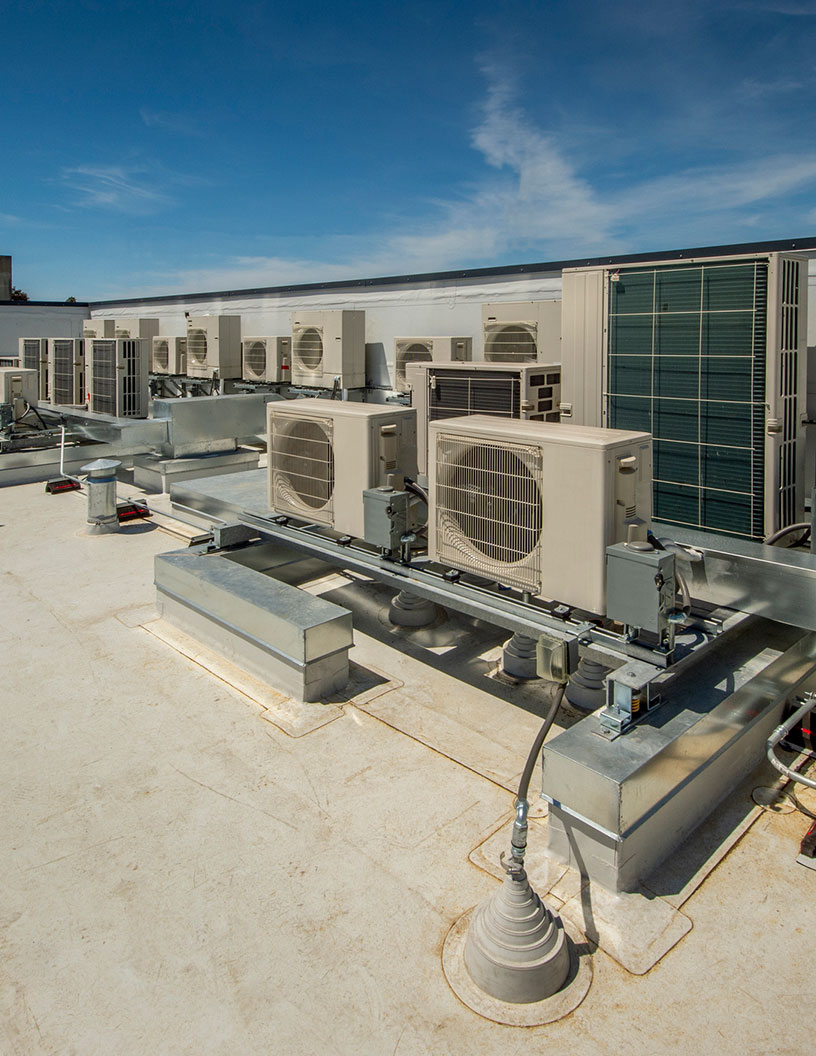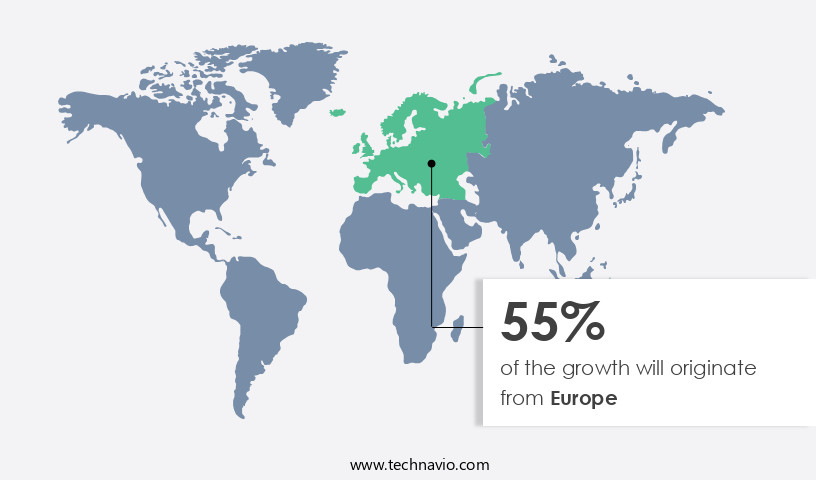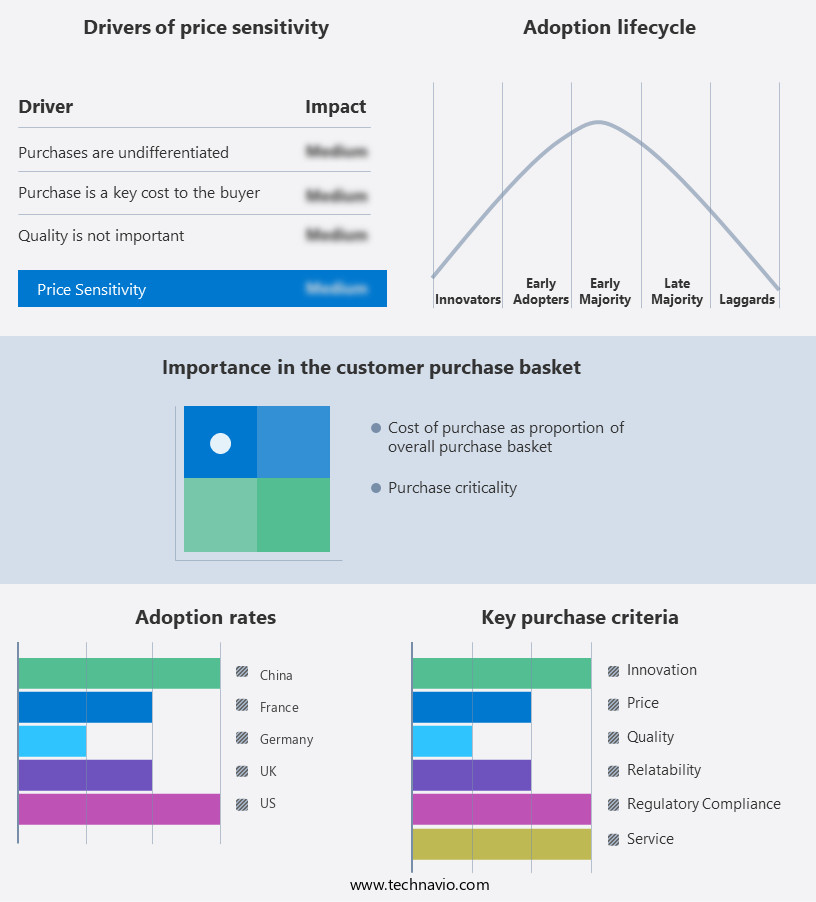Heat Pump Water Heater Market Size 2024-2028
The heat pump water heater market size is forecast to increase by USD 11.58 billion at a CAGR of 29.08% between 2023 and 2028.
- The Heat Pump Water Heater (HPWH) market presents a significant growth opportunity for energy-conscious consumers and businesses seeking to reduce their carbon footprint and lower utility costs. HPWHs utilize renewable energy from the ambient air to heat water, making them an eco-friendly alternative to traditional electric or gas water heaters. Key drivers propelling market expansion include increasing energy efficiency regulations, growing awareness of energy conservation, and the declining cost of renewable energy technologies. However, the market is not without challenges. One of the primary obstacles is the lack of awareness and understanding of HPWH technology among potential customers.
- Additionally, the upfront cost of HPWHs can be higher than conventional water heaters, which may deter some buyers. To capitalize on market opportunities and navigate these challenges effectively, companies can focus on education and marketing efforts to raise awareness of HPWH benefits, as well as explore financing options or incentives to help offset the initial investment. By addressing these issues, HPWH manufacturers and distributors can tap into the growing demand for energy-efficient and cost-effective water heating solutions.
What will be the Size of the Heat Pump Water Heater Market during the forecast period?
- The market is experiencing significant growth due to the increasing focus on energy efficiency in both the residential and commercial sectors. Air-source heat pumps, a type of heat pump water heater, are gaining popularity for their ability to provide energy-efficient solutions for residential energy consumption and commercial water heating. Geothermal heat pumps are also making strides in the market, offering renewable energy alternatives to traditional fossil fuel-based systems. Energy savings and environmental impact are key drivers for the adoption of heat pump water heaters. The global heating industry is embracing enhanced compressor technologies and heat exchanger designs to improve efficiency and reduce greenhouse gas emissions.
- Control systems are also becoming increasingly important, with smart technologies enabling better management of heating and cooling systems. Installation costs and climatic conditions are important factors influencing the market dynamics. Regulations, both environmental and energy efficiency, are also playing a significant role in the growth of the market. In the residential sector, energy efficiency standards are driving the demand for energy-efficient solutions, while in the commercial sector, environmental regulations are pushing companies to adopt greener alternatives to fossil fuel-based heating systems. The market is evolving, with a focus on innovation and sustainability. The integration of renewable energy sources and advanced control systems is expected to further boost the market's growth.
- Overall, the market is poised for continued expansion, offering opportunities for businesses in the HVAC equipment industry.
How is this Heat Pump Water Heater Industry segmented?
The heat pump water heater industry research report provides comprehensive data (region-wise segment analysis), with forecasts and estimates in "USD million" for the period 2024-2028, as well as historical data from 2018-2022 for the following segments.
- Application
- Residential
- Commercial
- Type
- Air source heat pump
- Geothermal heat pump
- Geography
- North America
- US
- Europe
- France
- Germany
- UK
- Middle East and Africa
- APAC
- China
- South America
- Rest of World (ROW)
- North America
By Application Insights
The residential segment is estimated to witness significant growth during the forecast period.
The residential segment dominates the market for heat pump water heaters, with its large-scale adoption in residential buildings driven by the benefits of high energy efficiency and renewable energy alternatives to traditional heating systems. The construction industry's recovery from the financial crisis has further fueled demand for these energy-efficient solutions. Heat pump water heaters are increasingly being integrated into residential buildings, particularly in regions with harsh climatic conditions, to meet residential energy consumption needs for both water heating and space heating applications. Energy savings is a significant factor driving the market, as heat pump water heaters offer up to 60% energy savings compared to conventional electric water heaters.
Renewable energy sources, such as solar and wind, are increasingly being used in conjunction with heat pump water heaters to further reduce carbon emissions and environmental impact. Installation costs, although initially higher than traditional water heaters, are offset by long-term energy savings. Advanced control systems, real-time monitoring, and smart technologies are also gaining popularity, enabling remote diagnostics and optimizing system performance. Environmental regulations continue to drive the adoption of energy-efficient devices, such as heat pump water heaters, as governments and organizations strive to reduce greenhouse gas emissions from the heating sector. Innovations in heat exchanger designs, thermal unit (TU) sizes, and energy efficiency standards further enhance the market's growth potential.
Commercial building construction is also witnessing a shift towards energy-efficient solutions, including heat pump water heating systems for large-scale water heating applications. High-density polyethylene pipes are increasingly being used for their durability and energy efficiency in the installation of these systems. Aerothermal heat pumps, a variant of heat pump water heaters, are gaining traction in the market due to their ability to extract heat from ambient air, making them suitable for regions with milder climates. Geothermal heat pumps, another energy-efficient alternative, are also being adopted for both residential and commercial water heating applications, particularly in regions with favorable geothermal conditions.
In summary, the market for heat pump water heaters is driven by the increasing demand for energy-efficient solutions, renewable energy integration, and environmental regulations. The adoption of these systems is expected to continue growing in both residential and commercial sectors, with innovations in technology and design further enhancing their appeal.
Get a glance at the market report of share of various segments Request Free Sample
The Residential segment was valued at USD 494.00 billion in 2018 and showed a gradual increase during the forecast period.
Regional Analysis
Europe is estimated to contribute 55% to the growth of the global market during the forecast period.Technavio’s analysts have elaborately explained the regional trends and drivers that shape the market during the forecast period.
For more insights on the market size of various regions, Request Free Sample
The European the market is experiencing significant growth due to the increasing emphasis on energy efficiency and reducing greenhouse gas emissions. Governments are implementing regulations to meet their targets, mandating minimum energy performance requirements for new and existing buildings. The prevalent cold climatic conditions in Europe increase the demand for heat pump water heaters in both residential and commercial sectors. This demand is driven by the energy savings offered by these systems, particularly in comparison to traditional fossil fuel-based heating methods. Moreover, the integration of smart technologies, such as real-time monitoring and control systems, enhances the efficiency of heat pump water heaters.
These systems enable remote diagnostics and optimize energy consumption based on usage patterns and climatic conditions. The use of renewable energy sources, such as solar and wind, in conjunction with heat pump water heaters further increases energy savings and reduces reliance on fossil fuels. The growth of the market is also influenced by the increasing adoption of energy-efficient devices and designs, such as thermal unit (TU) and heat exchanger designs. These innovations improve the overall performance and efficiency of the systems. Additionally, the use of high-density polyethylene pipes for installation reduces installation costs and environmental impact.
The European market for heat pump water heaters is expected to continue growing as the energy transition progresses and environmental regulations become more stringent. The market is also expanding to include commercial water heating applications, such as in hotels, hospitals, and office buildings. The integration of aerothermal heat pumps, which use outside air as a heat source, is another emerging trend in the market. Overall, the European the market is poised for continued growth as the demand for energy-efficient and environmentally friendly solutions increases.
Market Dynamics
Our researchers analyzed the data with 2023 as the base year, along with the key drivers, trends, and challenges. A holistic analysis of drivers will help companies refine their marketing strategies to gain a competitive advantage.
What are the key market drivers leading to the rise in the adoption of Heat Pump Water Heater Industry?
- Advantages of heat pump water heaters is the key driver of the market.
- Heat pump water heaters are innovative water heating solutions that offer energy efficiency, surpassing traditional electric water heaters. The core components of these water heaters are compressors and controllers. They extract thermal energy from various sources, including water, waste heat, ambient air, and the earth, to heat water stored in the tank. By adopting heat pump water heaters, the reliance on polluting energy sources, such as fossil fuels, for water heating in residential and commercial establishments is significantly reduced. This shift towards cleaner energy sources is a crucial step towards achieving carbon neutrality globally. As a professional assistant, I can provide you with insightful information about the market dynamics of heat pump water heaters.
- These water heaters offer several advantages, including energy savings, reduced greenhouse gas emissions, and a longer service life compared to traditional water heaters. Additionally, government incentives and regulations encouraging the adoption of energy-efficient technologies further boost the market growth. Overall, heat pump water heaters represent a promising solution for sustainable water heating and contribute to a greener future.
What are the market trends shaping the Heat Pump Water Heater Industry?
- New product launches is the upcoming market trend.
- The market for heat pump water heaters has experienced notable growth due to the rising demand for energy-efficient and intelligent water heating solutions in both residential and commercial sectors. These systems, which function as an alternative to traditional gas water heaters, are increasingly being adopted in office buildings and high-rise structures. This trend is driving companies to introduce new products, catering to the evolving market dynamics.
- For instance, in September 2022, A. O. Smith introduced the Voltex AL hybrid heat pump water heater, featuring integrated leak detection, smart connectivity, and updated water connections for homeowners. This addition to their residential product line reflects the company's commitment to meeting the growing demand for advanced water heating technologies.
What challenges does the Heat Pump Water Heater Industry face during its growth?
- Lack of awareness is a key challenge affecting the industry growth.
- Heat pump water heaters offer industries, particularly those with extensive energy consumption like food and beverage, an efficient and renewable alternative to traditional water heating systems. Applications such as waste beer concentration in breweries and process water heating in pharmaceuticals benefit significantly from this technology. However, The market faces a challenge in gaining traction due to limited consumer awareness.
- Many end-users remain uninformed about the renewable energy usage and superior efficiency of heat pump water heaters compared to conventional equipment. As a professional assistant, it is essential to emphasize the environmental benefits and cost savings associated with this technology to potential consumers. By increasing awareness and understanding of its advantages, the market can experience notable growth.
Exclusive Customer Landscape
The heat pump water heater market forecasting report includes the adoption lifecycle of the market, covering from the innovator’s stage to the laggard’s stage. It focuses on adoption rates in different regions based on penetration. Furthermore, the heat pump water heater market report also includes key purchase criteria and drivers of price sensitivity to help companies evaluate and develop their market growth analysis strategies.
Customer Landscape
Key Companies & Market Insights
Companies are implementing various strategies, such as strategic alliances, heat pump water heater market forecast, partnerships, mergers and acquisitions, geographical expansion, and product/service launches, to enhance their presence in the industry.
A. O. Smith Corp. - The company provides a range of energy-efficient heat pump water heating solutions, including the HPW 60, HPI 40, and HPA 80 models. These systems deliver cost-effective and eco-friendly hot water solutions, enhancing overall energy efficiency for residential and commercial applications. Heat pump water heaters utilize advanced technology to transfer heat from the ambient air to water, reducing reliance on traditional energy sources and lowering greenhouse gas emissions. By integrating these systems into daily operations, businesses and households can significantly reduce their carbon footprint and save on energy costs.
The industry research and growth report includes detailed analyses of the competitive landscape of the market and information about key companies, including:
- A. O. Smith Corp.
- Ariston Holding NV
- Bradford White Corp.
- Carrier Global Corp.
- Daikin Industries Ltd.
- Fujitsu General Ltd.
- Glen Dimplex Group.
- Guangdong PHNIX Eco energy Solution Ltd.
- Haier Smart Home Co. Ltd.
- LG Corp.
- MIDEA Group Co. Ltd.
- Mitsubishi Heavy Industries Ltd.
- NIBE Industrier AB
- Nyle Systems LLC
- Panasonic Holdings Corp.
- Rheem Manufacturing Co.
- Rinnai Corp.
- STIEBEL ELTRON GmbH and Co. KG
- V Guard Industries Ltd.
- Vaillant GmbH
Qualitative and quantitative analysis of companies has been conducted to help clients understand the wider business environment as well as the strengths and weaknesses of key industry players. Data is qualitatively analyzed to categorize companies as pure play, category-focused, industry-focused, and diversified; it is quantitatively analyzed to categorize companies as dominant, leading, strong, tentative, and weak.
Research Analyst Overview
The market is experiencing significant growth as the global energy landscape undergoes a transition towards renewable energy and increased energy efficiency. Traditional fossil fuel-based HVAC equipment is being replaced with more sustainable alternatives, such as geothermal heat pumps, to reduce residential energy consumption and carbon emissions. Geothermal heat pumps, which utilize the earth's natural heat to generate hot water, are becoming increasingly popular due to their energy savings and environmental benefits. The installation of these systems involves the use of a thermal unit (TU) and a series of high-density polyethylene pipes that transfer heat from the ground to the water tank.
Climatic conditions play a crucial role in the adoption of geothermal heat pumps, as they are most effective in areas with consistent ground temperatures. In residential applications, these systems offer significant energy savings by using less electricity than traditional water heating methods. Moreover, they provide an opportunity for homeowners to contribute to the reduction of greenhouse gas emissions and environmental impact. Air-source heat pumps are another energy-efficient solution for residential water heating. These systems use the ambient air temperature to heat water, making them an attractive option for those unable to install geothermal systems. Control systems and real-time monitoring technologies have further enhanced the efficiency and convenience of these systems, allowing for remote diagnostics and optimized performance.
The HVAC industry is responding to the growing demand for energy-efficient devices by investing in advanced heat exchanger designs and energy efficiency measures. Energy efficiency standards continue to evolve, driving innovation and competition in the market. In commercial building construction, the focus on energy efficiency and sustainability has led to increased adoption of geothermal heat pumps for water heating. These systems offer significant energy savings and environmental benefits, making them a cost-effective solution for large-scale water heating applications. The installation costs of geothermal heat pumps and other energy-efficient solutions can be a pain point for consumers.
However, the long-term energy savings and environmental benefits often outweigh the initial investment. Additionally, government incentives and financing options can help offset the upfront costs for homeowners and businesses. Aerothermal heat pumps, which use ambient air as both a heat source and a coolant, are an emerging technology in the market. These systems offer the potential for even greater energy savings and environmental benefits, making them an exciting development in the industry. The global heating industry is embracing renewable energy and energy efficiency as key drivers of growth. The adoption of energy-efficient devices, such as geothermal and air-source heat pumps, is becoming increasingly widespread as consumers and businesses seek to reduce energy consumption and carbon emissions.
The market is expected to continue evolving as new technologies and regulations shape the future of the heating industry.
|
Market Scope |
|
|
Report Coverage |
Details |
|
Page number |
170 |
|
Base year |
2023 |
|
Historic period |
2018-2022 |
|
Forecast period |
2024-2028 |
|
Growth momentum & CAGR |
Accelerate at a CAGR of 29.08% |
|
Market growth 2024-2028 |
USD 11583.9 million |
|
Market structure |
Fragmented |
|
YoY growth 2023-2024(%) |
22.6 |
|
Key countries |
US, China, France, Germany, and UK |
|
Competitive landscape |
Leading Companies, Market Positioning of Companies, Competitive Strategies, and Industry Risks |
What are the Key Data Covered in this Heat Pump Water Heater Market Research and Growth Report?
- CAGR of the Heat Pump Water Heater industry during the forecast period
- Detailed information on factors that will drive the growth and forecasting between 2024 and 2028
- Precise estimation of the size of the market and its contribution of the industry in focus to the parent market
- Accurate predictions about upcoming growth and trends and changes in consumer behaviour
- Growth of the market across Europe, North America, APAC, Middle East and Africa, and South America
- Thorough analysis of the market’s competitive landscape and detailed information about companies
- Comprehensive analysis of factors that will challenge the heat pump water heater market growth of industry companies
We can help! Our analysts can customize this heat pump water heater market research report to meet your requirements.




